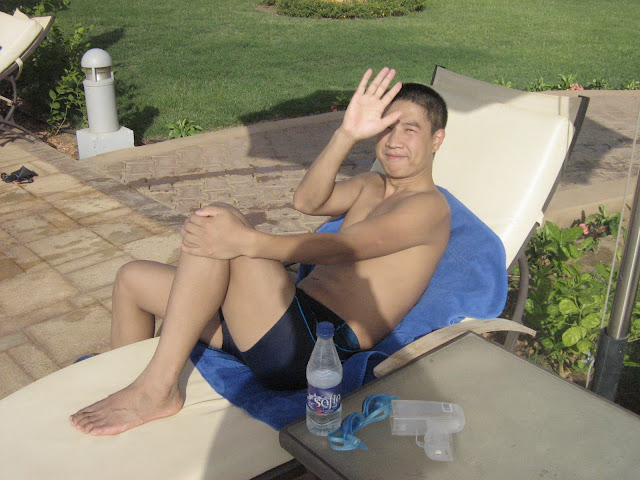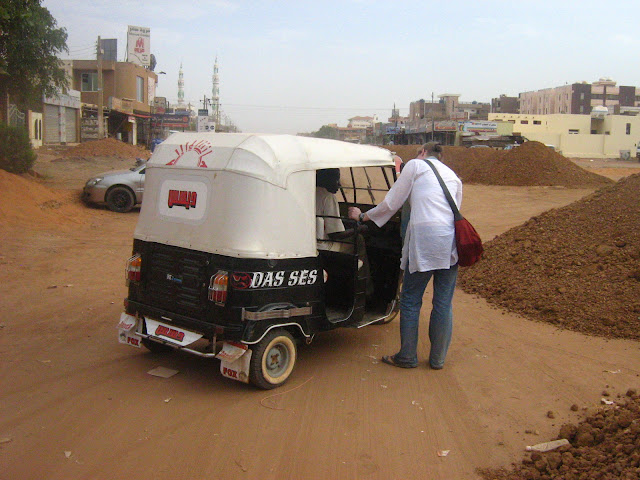English Teacher in Oman
Best of Dhank
2008-2009
Background
I often, as a reprieve from the boredom in Ibri, just drove around the countryside around Ibri exploring rural Oman, taking pictures.
Near Ibri town, is Dhank, which became a source of many of my photographs, as it has beautiful natural scenery of green farmland, plantations, and wadis with beautiful mountains as a backdrop.
It became the scene also of my marriage proposal to my fiance at that time. She came to visit me in October 2008, and I decided to pop the question on the 14th of November on a hilltop on the outskirts of Dhank town. I drove around the countryside looking for a suitable spot and then spotted a road leading up to a hill. It had a beautiful view of Dhank and the countryside down below. We threw open a blanket, had a picnic and then popped the question.
About Oman
Oman, officially the Sultanate of Oman, is an Arab country on the southeastern coast of the Arabian Peninsula. Holding a strategically important position at the mouth of the Persian Gulf, the country shares land borders with the United Arab Emirates to the northwest, Saudi Arabia to the west, and Yemen to the southwest, and shares marine borders with Iran and Pakistan. The coast is formed by the Arabian Sea on the southeast and the Gulf of Oman on the northeast. The Madha and Musandam exclaves are surrounded by the UAE on their land borders, with the Strait of Hormuz (which it shares with Iran) and the Gulf of Oman forming Musandam's coastal boundaries.
From the late 17th century, the Omani Sultanate was a powerful empire, vying with Portugal and Britain for influence in the Persian Gulf and the Indian Ocean. At its peak in the 19th century, Omani influence or control extended across the Strait of Hormuz to modern-day Iran and Pakistan, and as far south as Zanzibar (today part of Tanzania, also former capital). As its power declined in the 20th century, the sultanate came under the influence of the United Kingdom.
Historically, Muscat was the principal trading port of the Persian Gulf region. Muscat was also among the most important trading ports of the Indian Ocean. Oman is an absolute monarchy. The Sultan Qaboos bin Said al Said has been the hereditary leader of the country since 1970. Sultan Qaboos is the longest-serving current ruler in the Middle East, and sixth-longest current reigning monarch in the world.
Oman has modest oil reserves, ranking 25th globally. Nevertheless, in 2010 the UNDP ranked Oman as the most improved nation in the world in terms of development during the preceding 40 years. A significant portion of its economy is tourism and trade of fish, dates, and certain agricultural produce. This sets it apart from its neighbors’ solely oil-dependent economies. Oman is categorized as a high-income economy (Wikipedia).
 |
| On top of the hill, having a picnic. It is here that I asked my then fiance to marry me - 14 November 2008 |
Countryside near Dhank
 |
| Nature scenery near Dhank (About 20 km from Ibri on the Al Ain Road) |
 |
| Goats - rural area near Dhank |
 |
| Rural area near Dhank |
 |
| Rural area near Dhank |
 |
| Occupied ruins - rural area near Dhank |
 |
| Herdsman - in a wadi, near Dhank |
 |
| Omani farm near Dhank |
 |
| Wadi scenery near Dhank |
 |
| Dhank street scenery at sunset |
Occupied ruins - rural area near Dhank
Indian and Pakistani laborers usually take up residence in these ruins. They earn between 60- 90 Omani Riyal per month, half of which they send back home to their families. Deplorable conditions as they are exploited by their Muslim 'brothers' in the Gulf.
One thing they however never compromise on, satellite TV.
 |
| Occupied ruins - rural area near Dhank |
Dhank
 |
| The main street leading into Dhank |
 |
| Dhank shop front |
 |
| Dhank restaurant |
 |
| Dhank bank |
 |
| Dhank street scenery |
 |
| Omani villa gate - Dhank |
 |
| Decorated roundabout - Dhank |
 |
| Dhank shop front |
 |
| Long distance bus stop - outside Dhank |
Getting engaged on a hill in Dhank
 |
| Getting engaged |
 |
| View of Dhank area from a hill |
 |
| Ansu |
 |
| Dhank scenery |
 |
| Dhank at sunset |


















